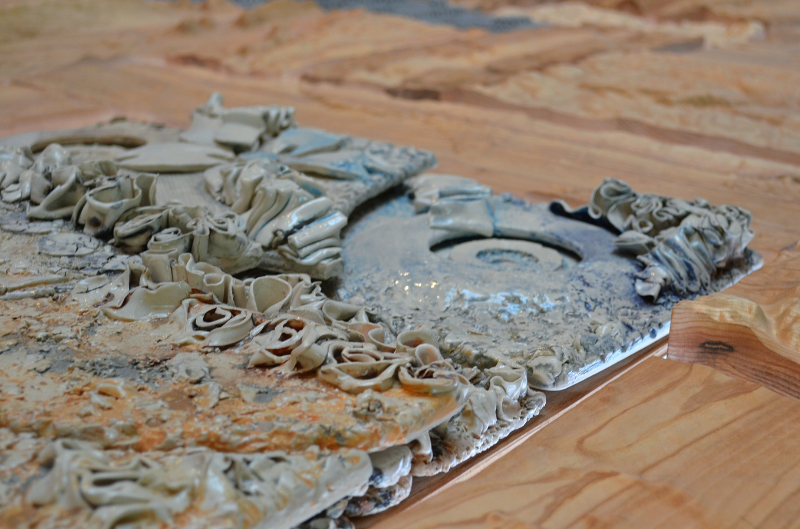Polish furniture, textiles and ceramics an example for others
We are promoting applied arts at Expo 2020 Dubai

Polish industrial design at Expo 2020 Dubai
The beginnings of design in Poland
Interest in applied arts in Poland developed thanks to the Krakow Workshops, which were very successful at the International Exhibition of Modern Decorative and Industrial Arts in Paris in 1925. In total, they won almost 190 awards at the exhibition. Visual artist Wanda Telakowska played a key role in the difficult post-war times. It was thanks to her that the concept of industrial design was created in 1947, and three years later the Institute of Industrial Design was established. Wanda Telakowska is still held in high esteem today. Even the residents of a tenement house in Old Praga and the designer Radek Skrzypczyk commemorated her. In Warsaw at ul. Panieńska, the mural 'Kajaki' [Kayaks], based on a 1933 woodcut by the artist and activist, was created.
Expo 2020 Dubai – arena for international promotion of Polish industrial design
Nowadays, industrial design is in great demand and decorative elements are, next to price and practical considerations, the most important factor when choosing a particular product. That is why it is so important to promote Polish creators and look for new markets and foreign investors. At the 2010 Expo in Shanghai, we recognised the great potential of industrial design with the "Added Value. World Class Design from Poland" exhibition. Developed by the Polish Investment and Trade Agency first such comprehensive Economic Programme helps promote the industry and establish new business contacts at Expo 2020 Dubai. It consists of more than a dozen initiatives aimed at increasing investment and export for companies in the applied arts industries, among others.
Oskar Zięta as one of the most recognisable creators of modern design
At Expo 2020 Dubai, Oskar Zięta's projects prove that Polish design can be creative and innovative. The architect and artist from Wrocław is the inventor of the FiDU technology of the future. One of the most spectacular examples of his sculptures made using this technique, which involves 'inflating' forms and shapes out of steel, is Wir [Vortex]. The tallest art installation in Poland is located in Warsaw's Galeria Północna. It is 24 metres tall and captures people's attention with its original aesthetics. Oskar Zięta is also the author of the Nawa [Nave] sculpture, which was also made using FiDU technology. 1,000,000 m3 of air was used to pump 51,804 kg of steel. The Wrocław designer has many other achievements. Another one is the lightest chair in the world. It weighs only 1,660 grams, it is made of aluminium and won the Red Dot 2021 award.
The copper and silver module in the Polish Table
Oskar Zięta is one of our applied arts ambassadors at Expo 2020 Dubai. For the World Expo, the Wrocław designer prepared special modules for the Polish Table installation, which refer to a cross-section of mountain ranges. He used FiDU technology for this project, enhancing the two-dimensional metal forms with something akin to a third dimension. The project was made from copper and silver and combined original aesthetics with functionality. Osakar Zięta's special module is one of several modules that make up the spectacular installation of the Polish Table.
"Poland. Spirit of ingenuity" sector
In the "Poland. Spirit of ingenuity" sector of the Poland Pavilion, Polish companies that specialise in modern and aesthetic design are presented. In addition to Oskar Zięta's studio, you can learn about the achievements of Ergo Design. This design company has been in business for 27 years and has implemented 750 products for various clients: from a glass recycling system to modern prams made of environmentally friendly materials. Rondo (specialising in garden furniture) and Serfenta (offering braided baskets) are among the companies promoting themselves at Expo 2020 Dubai. Alternative designs in the field of functional, decorative and artistic ceramics by Modus Design are also presented in the Poland Pavilion. The studio was founded in 1976 in New York by the renowned designer Marek Cecuła, who now also works with the Ćmielów and Chodzież Polish Porcelain Factory.
Between 11 and 30 November 2021, Poland Pavilion hosted the "On The Strength of Polish Design" exhibition. The exhibition was organised by the Patent Office of the Republic of Poland.